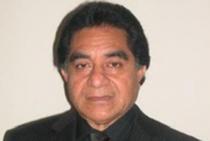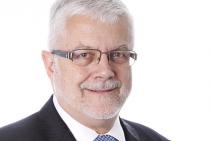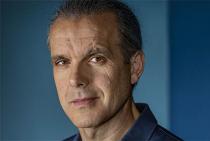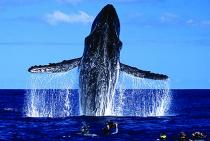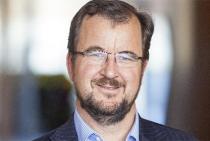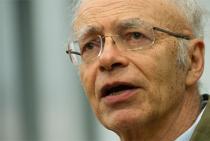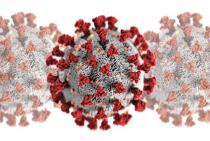Kau fakatalanoa mu’a ki he uho ‘o e palopalema ‘oku tau fehangahangai moia ‘i he lolotonga, pea ‘oku ‘i ai ‘eku tui te tau hokohoko atu ki he kaha’u pea toe kovi ange.- 'Inoke Fotu Huakau.
You are here
Results for Opinion
Wednesday 17 June 2020
London, United Kingdom
Governments cannot openly admit that the "controlled easing” of COVID-19 lockdowns in fact means controlled progress toward so-called herd immunity to the virus. Because there is currently no COVID-19 vaccine, governments have had to find other ways to prevent “excess deaths.” Most have opted for lockdowns, which remove entire populations from the path of the virus and thus deprive it of hosts. But this strategy has a terrible weakness: governments cannot keep their populations locked down until a vaccine arrives. Apart from anything else, the economic cost would be unthinkable. So, they have to ease the lockdown gradually. By Robert Skidelsky
Monday 15 June 2020
Oslo, Norway
From Jamaica to Palau and Norway to Indonesia, the impact of the COVID-19 crisis is global, and national recovery efforts must be globally focused to seize shared opportunities. Nowhere is this more evident than in the global domain that unites us – the ocean. We now need to harness the potential of 70% of the planet to provide a “blue boost” to our economies, while building a more resilient and sustainable world. By Erna Solberg and Tommy Remengesau, Jr.
Tuesday 26 May 2020
Tofoa, Tongatapu
Time has given Tonga a great opportunity to prepare itself for the virus and any cases that it might produce. The question is, has this time been used wisely and with urgency to prepare Tonga for the future risks? Those risks, however small, exist even now. Aid money is coming in. Using that to build up the capacity of the health system now means that this can be kept for the future. Wouldn’t it be great if Vaiola were to have a state-of-the-art five-bed ICU that can treat anyone who needs that level of care even after CoViD-19 abates? The staff can do it, if only the facility is there. And it could be. And so we await the arrival of the virus.
I hope Tonga is well prepared when it does.... - Dr Russ Schedlich
Monday 25 May 2020
Nuku'alofa, Tonga
As there is no virus and we still live under restrictions, what does this mean for the future? As government seems “happy” with the curfew, will a curfew now become part of our daily life? Does it really reduce crime? Or are we now in a period of moral justification for limiting people’s freedom? - Dean Bishoprick
Thursday 21 May 2020
Utah, USA
Hon. Prime Minister: Does my country, Tonga, expect me to break the United States law and be punished by it, because our Tongan government can’t even open up their borders even for a limited period of time for their citizens who are stuck worldwide to come home? What the Tongan country expects me to do, after my visa expires, especially when the US government have made no exceptions to allow us international students to stay in the US longer than we’re supposed to. - Salaetau Tuita
Friday 15 May 2020
Washington DC, USA
The Seychelles, a string of 115 verdant, rocky islands in the Indian Ocean, recently announced – in the midst of the coronavirus pandemic – that it would protect 30% of its glittering turquoise waters from commercial use - made possible through an innovative debt-swap deal – that will also bolster the health, wellbeing, and prosperity of the Seychellois, who number under 100,000 but cater to more than 350,000 visitors each year. - By Enric Sala
Wednesday 29 April 2020
Nuku'alofa, Tonga
Tonga's economy is going to suffer as a result of this pandemic with a decline in remittances and the complete shutdown of the tourism sector - the two largest sources of foreign exchange for the Kingdom. We urge the government to lift the six weeks old restrictions on bars, clubs and restaurants. While the borders remain closed, why must we stay closed? We employ over 300 people. - Tonga Bar, Club & Restaurant Association.
Monday 27 April 2020
Mounu Island, Vava'u
Humpback Whales have been coming to Tonga since the distant past, they were almost wiped out during the hunting years. Numbers are climbing back. But for how long can we maintain the fragile balance of tourist and whale? Vava’u cannot sustain more boats out on the water. In these times with CoVid-19 and an unsure future for the tourism industry, it is very hard to have any hope or faith in commitment from government for a sustainable industry and conservation of the whales, when they are seen as an avenue for more revenue.- Kirsty Bowe
Friday 24 April 2020
Nuku'alofa, Tonga
Most activities have been re-opened so why are bars and kava clubs still restricted? The answer can’t be to ensure that we adhere to social distancing – instead it must be an attempt to regulate the social activities to make sure we stay away from alcohol and kava, an unstated goal of the police and health ministries for years. It might be time to consider the positive side of these businesses as they provide a more healthy outlet for people than drinking in the streets or cars and they pay wages that help keep the economy going. - Dean Bishoprick
Wednesday 22 April 2020
Paris, France
The COVID-19 crisis comes at a crucial moment: the beginning of the last decade that we have to act on climate change. Governments are about to spend trillions of dollars to soften the blow from COVID-19. We must not let that money go to waste. When one is being buffeted by a storm of this magnitude, the worst thing one can do is lose one’s compass. But we must use that compass to chart a new course toward an economic model that places human and environmental sustainability at its center. By Bertrand Badré
Friday 17 April 2020
California, USA
A great number of Tongan citizens remain stranded overseas and are eager to return home and be reunited with their families, not considering the fact that they are possibly under hardship or financial stress. We appeal to the Government to please devise a solution for us to return. - Stranded Tongans.
Wednesday 8 April 2020
Nuku'alofa, Tonga
With CoViD-19 we are reminded that viruses and germs cause sickness on a large scale and that hands are one of the leading transmitters of germs that cause respiratory infections, typhoid and diarrhoea. Thousands of children under five die in the Pacific each year from diarrhoeal diseases. Germs transmitted by hands play a large role in this type of death. By Otto ten Bosch, Matangi reader.
Tuesday 7 April 2020
Melbourne, Australia
As government mandated lockdowns to combat the coronavirus pandemic affect a rising share of the global population, fewer will die of COVID-19, as well as other transmissible diseases. But how should we weigh those benefits against the costs of unemployment, social isolation, and widespread bankruptcies? By Peter Singer and Michael Plant.
Friday 3 April 2020
Austin-Texas, USA
China's success in "flattening the curve" of the COVID-19 epidemic has been held up as a model for the rest of the world to emulate. But what the world really needs to understand is that "victory" required massive sacrifices by doctors, nurses, and other health workers whose names we will never know. The doctors and nurses on the front lines having lived through hell, see little to celebrate, much to mourn, and reason to remain fearful.
Tuesday 31 March 2020
Washington DC, USA
A pandemic is enveloping the world, endangering the lives and livelihoods of millions of people. As US President Donald Trump desperately seeks to shift blame for his own ineptitude, China is laying the groundwork for global leadership in the post-COVID-19 era. Thanks to Trump, the US will almost certainly lose the great-power competition – and countless lives. By Vali Nasr
Thursday 26 March 2020
Suva, Fiji
Fakamolemole pe kae tu’u atu e ki’i tohi ni na’a a’u atu ai homau le’o ki hotau ki’i Pule’anga. - Leonaitasi Taukafa.
Tuesday 24 March 2020
Baltimore, USA
It is likely that eventually, CoViD-19 will become endemic (commonly recurring in the community), and most of us will get infected, says Justin Lessler, an associate professor of Epidemiology at the Johns Hopkins Bloomberg School of Public Health in the United States, stressing that it is most important to slow the speed of transmission.
Tuesday 24 March 2020
Cambridge-MA, USA
As the coronavirus pandemic shuts down the world’s economies, stock markets plummet, and unemployment rises, policymakers will be forced to figure out how to contain the outbreak while preventing financial and economic collapse. Most economic proposals in developed countries focus on cash payments to people, deferred tax payments, and business bailouts. But biomedicine is critical to saving the economy ...a simple immunity test could tell us who doesn’t need to be taken out of economic circulation... and impede an economic Armageddon.- Mark Roe.
Saturday 14 March 2020
Berlin, Germany
No one knows where or how fast a new virus will spread. We cannot calculate the risks with confidence, and we will know only in hindsight whether we overreacted or underreacted. Given this uncertainty, how we respond to a viral outbreak is as crucial as the nature of the pathogen. And how we respond to the COVID-19 coronavirus should be guided by what we have learned from past viral epidemics. - By Gerd Gigerenzer.


